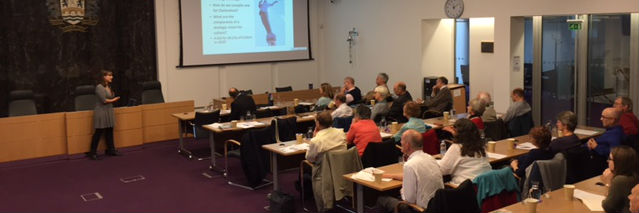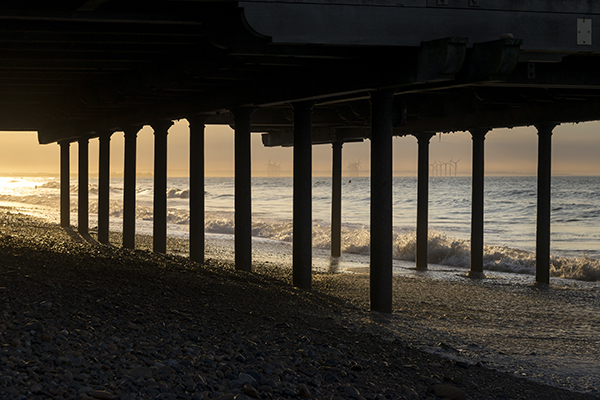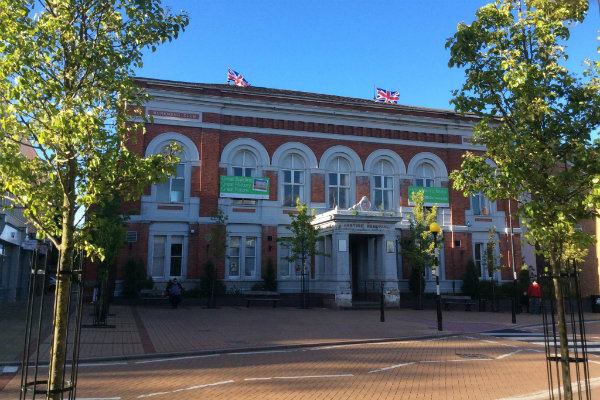Chelmsford has a long, rich commercial history, but many feeling local heritage has been overlooked in recent years. Fellows in Chelmsford got together to explore what a heritage strategy would mean for Chelmsford. Find out what they discussed, and what lessons learned can be applied elsewhere.
Three Fellows in Chelmsford (including Heritage Ambassador, Malcolm) organised a workshop to develop a heritage strategy for the local area, as part of Chelmsford Ideas Festival. How can heritage be used to generate a shared identity of place? With local heritage stakeholders and members of the public in the room, we heard from people working to conserve Chelmsford’s history for the future – and what the residents of Chelmsford can do. The workshop led to the establishment of a heritage strategy group who will meet to plan a coherent vision for Chelmsford.
The outcomes weren’t groundbreaking, but they were realistic and relevant, and it’s worth considering these questions in other parts of the country with similar aspirations.
Seven key lessons:
1. Get people to participate in your living heritage. Heritage becomes visible when people begin to form habits around it. The example came from Saruhan Mosler, who spoke beautifully about a case study in Germany where cycle routes have been developed around and between heritage sites. As well as attracting tourists, it has become a weekend activity for local families to cycle around a UNESCO heritage site. With mutual benefits for health and heritage, the blatant promotion of historic significance gives people something understandable and tangible – and it’s creating new stories for the future.
“When heritage is used every day, it becomes valuable”
2. When you identify the economic value of heritage, you can start to manipulate it to your advantage – and that’s not a bad thing. Particularly at a time when public funding looks less likely, it’s vital to make an economic case for heritage. Heritage Lottery Fund already study the economic value of heritage-based tourism in the UK.
3. Identify quick wins and longer term aims. Look for things that have immediate impact. Communications and marketing is a good place to start – and consider where people currently go to search for that kind of information.
“You don’t have to look that far in to your High Street; you just have to know where to look”
Rather than focusing time and energy on convincing the Council to build a Tourist Information Centre, it was suggested that Chelmsford started with the local library to showcase local stories and activities. Use this as an opportunity to build momentum around tourism – as well as involving local residents who may not be aware of what local heritage assets exist.
Identify the longer-term aims too: things that are practical and realistic, but may require investment (such as the local initiative for a Marconi-based science centre).

4. Campaign together and for one another. When people are passionate about a cause they focus their energy on that and it’s easy to become insular. Chelmsford has lots of heritage, but its groups typically work in isolation in applying for funding or for publicity. This is common, and can feel a little like Monty Python’s sketch the Judean People’s Front.
“There are a certain numbers of volunteers, and 10 different societies that we all belong to. That is the worst thing for us. It dilutes us.”
5. Bring the heritage stakeholders together in a room – so people could share stories of local heritage (and sometimes correcting misinformation). In doing this a group can start to explore a communications calendar, focusing on different events that they can all feed into – which is a great way to create a coherent outward-facing profile.
6. Don’t worry about disjointed incrementalism. In fact, it’s sometimes the only way for things to develop.
7. Make sure you follow up. People have to commit to delivering the outcomes highlighted, and to lead a group. It was clear from discussion that what those in Chelmsford needed was a clear direction and aim.
“It is down to people in this room to do it as volunteers.”
Scoping an application for City of Culture 2021 status gave Chelmsford that focus, but this risked being another missed opportunity until somebody stepped forward, after the workshop, to organise a further meeting planned for January. Contact Malcolm Noble to find out more.
You can do a similar workshop in your area – contact me to get the agenda and discussion themes. I'll be keeping an eye on Chelmsford and hold Barry and others to account as the Chelmsford heritage strategy develops.
Related articles
-
Changing how we see heritage can help us build back better
Becca Antink
How the heritage sector is making a difference in local communities.
-
What does heritage mean to you?
Becca Antink
The RSA is working on how heritage can improve lives in local places. Here are our stories of what heritage means to us - what are yours?
-
A Community finds its voice: One Heritage Ambassador's Story
jc
June Campbell FRSA and Heritage Ambassador reflects on what is required to cherish and develop a sense of place where you live with a reflection on the Anstice Memorial Hall in Madeley.




Be the first to write a comment
Comments
Please login to post a comment or reply
Don't have an account? Click here to register.